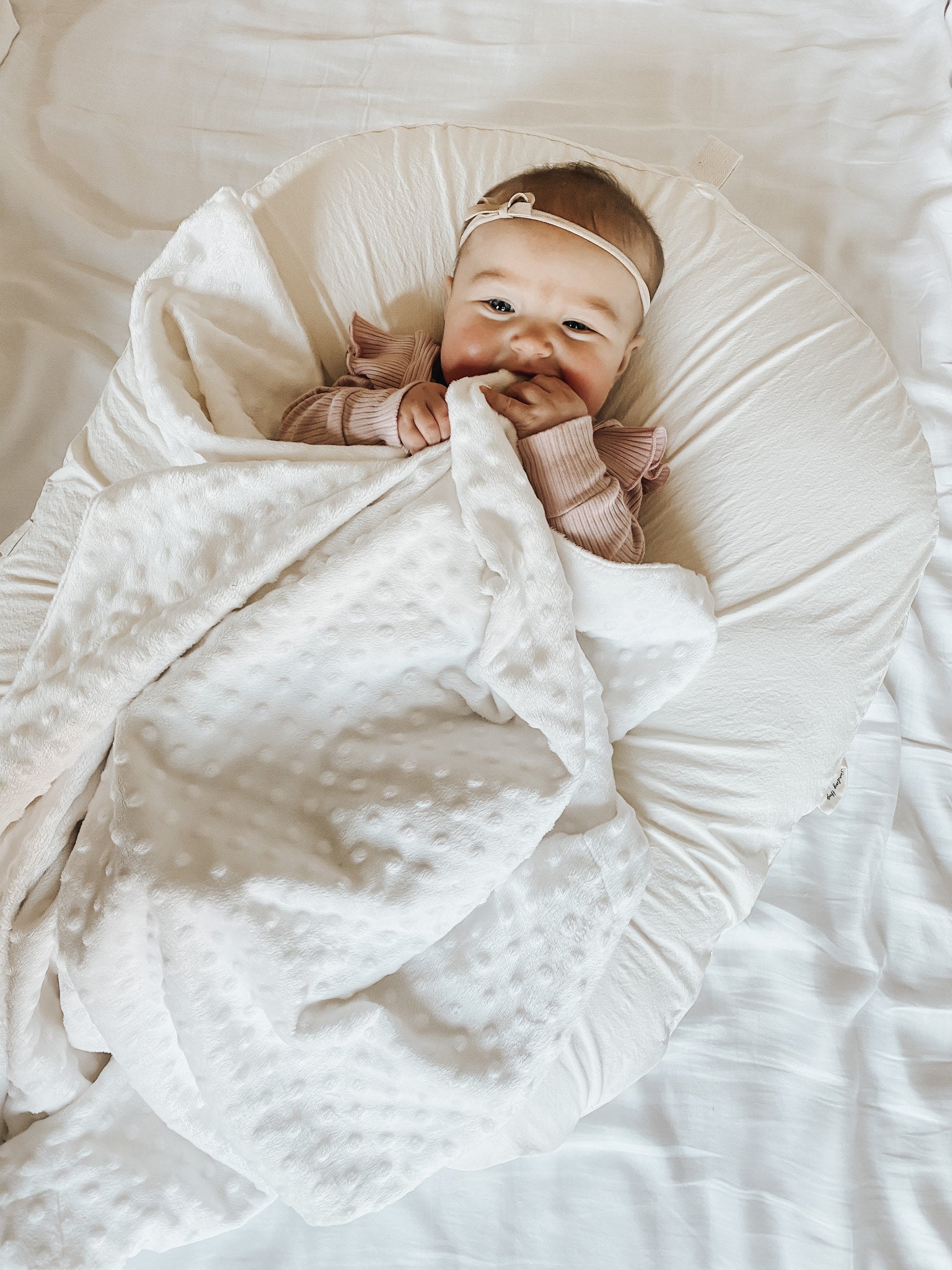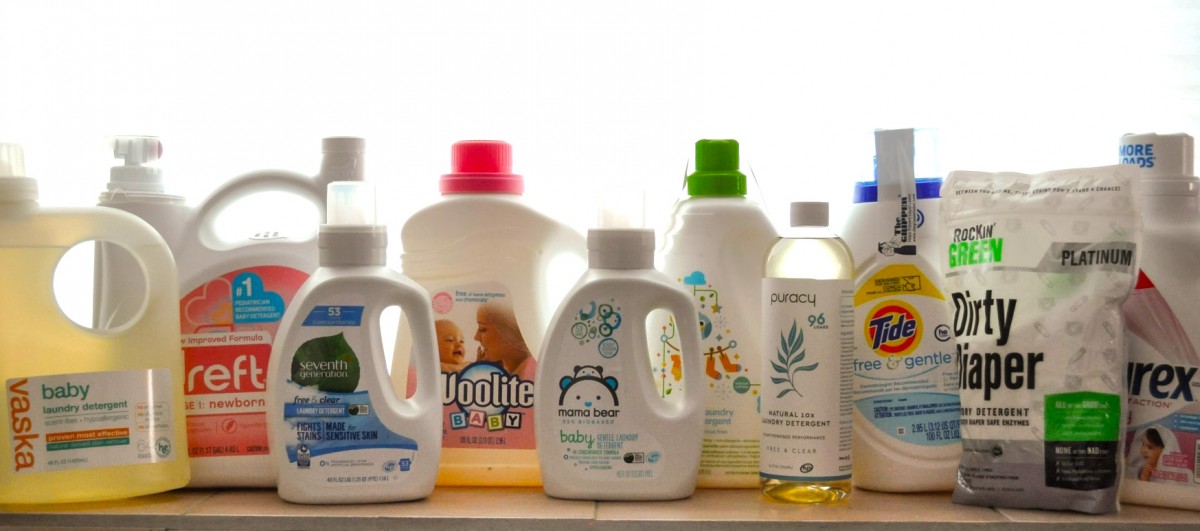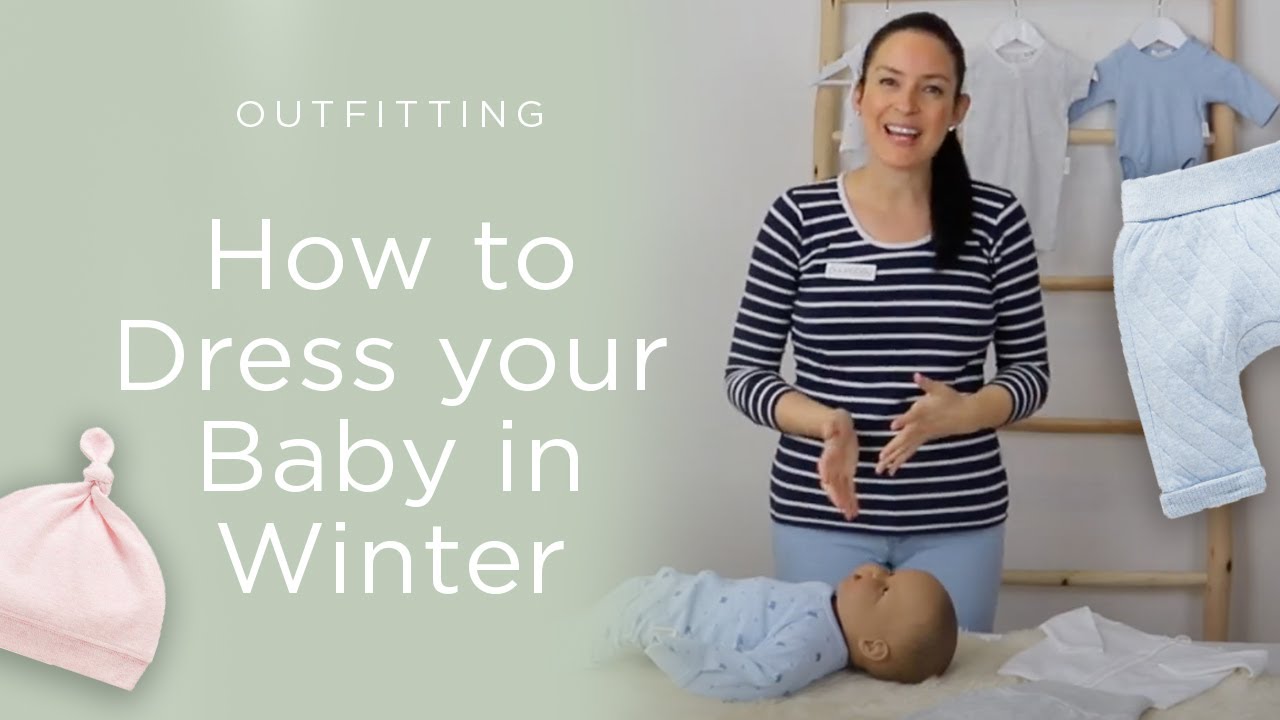Choosing the right clothes for a newborn with sensitive skin is crucial. Parents want their baby to be comfortable and safe.
Newborns have delicate skin that can easily get irritated. Picking the right fabric and design can make a big difference. Not all baby clothes are created equal. Some materials can cause rashes or discomfort. Soft, breathable, and hypoallergenic clothes are ideal.
Parents need to know what to look for to keep their baby happy and healthy. This guide will help you find the best newborn clothes for sensitive skin, ensuring your baby’s comfort and well-being. Keep reading to discover what makes these clothes special and how they can benefit your little one.
Introduction To Newborn Clothes
Welcoming a newborn into the family is a joyous occasion. Every parent wants the best for their baby, especially when it comes to clothing. Newborns have delicate skin that needs special care. Choosing the right clothes can make a big difference in their comfort and happiness.
Importance Of Choosing The Right Fabric
Newborn skin is very sensitive. The fabric of their clothes plays a crucial role in ensuring their comfort. Natural fabrics, like cotton, are soft and breathable. They help keep the baby’s skin dry and free from irritation. Synthetic fabrics can cause rashes and discomfort. It is vital to pick fabrics that are gentle on the skin.
Benefits Of Soft Clothing
Soft clothing provides many benefits for newborns. It reduces the risk of skin irritation and allergies. Babies feel more comfortable and sleep better in soft clothes. Soft fabrics also allow for better movement. Babies can stretch and wiggle without feeling restricted. This helps in their physical development.
Investing in soft, high-quality clothes for your newborn is important. It ensures their skin stays healthy and they remain happy. Always choose clothes that prioritize their comfort and well-being.

Credit: www.goodhousekeeping.com
Common Skin Sensitivities
Newborns have delicate skin, making them prone to various skin sensitivities. Identifying these sensitivities early can help in choosing the best clothing for your baby. The right fabric can make a significant difference in their comfort and health.
Identifying Skin Allergies
Recognizing skin allergies in newborns can be challenging. Common signs include redness, itching, and rashes. Some babies may also develop small, raised bumps on their skin. These symptoms often appear where the skin contacts clothing, such as around the neck, wrists, or ankles.
Parents should observe their baby’s reactions to different fabrics. Note any signs of discomfort or visible skin changes. Keeping a diary can help track which fabrics cause issues. If you notice consistent problems, consult a pediatrician for advice.
Impact Of Rough Fabrics
Rough fabrics can irritate a newborn’s sensitive skin. Materials like wool or synthetic fibers can cause friction, leading to skin irritation. This irritation can manifest as redness, rashes, or dry patches.
To avoid these issues, choose clothing made of soft, breathable fabrics. Options like organic cotton or bamboo are gentle on the skin. These materials reduce the risk of irritation and keep your baby comfortable.
Here’s a quick reference table for suitable and unsuitable fabrics:
| Suitable Fabrics | Unsuitable Fabrics |
|---|---|
| Organic Cotton | Wool |
| Bamboo | Polyester |
| Soft Linen | Nylon |
Choosing the right fabric can protect your baby’s skin. Make informed choices for their comfort and well-being.
Choosing The Right Fabrics
Choosing the right fabrics for newborn clothes is crucial for babies with sensitive skin. The delicate skin of a newborn can easily get irritated by rough or synthetic materials. To ensure your baby stays comfortable and rash-free, consider fabrics that are natural, soft, and breathable. Let’s explore two of the best fabric options for sensitive skin: organic cotton and bamboo fabric.
Organic Cotton
Organic cotton is an excellent choice for newborns. It is grown without harmful chemicals or pesticides. This makes it safer and gentler on a baby’s sensitive skin. Unlike traditional cotton, organic cotton is softer and less likely to cause irritation.
Benefits of Organic Cotton:
- Hypoallergenic
- Breathable
- Soft and comfortable
- Environmentally friendly
Organic cotton clothes are also durable and easy to wash. This makes them a practical choice for new parents. Opting for organic cotton means choosing a fabric that is both safe and sustainable.
Bamboo Fabric
Bamboo fabric is another fantastic option for newborns with sensitive skin. Bamboo is naturally hypoallergenic and has antibacterial properties. This helps prevent skin infections and keeps the fabric fresh.
Advantages of Bamboo Fabric:
- Extremely soft
- Moisture-wicking
- Thermo-regulating
- Eco-friendly
Bamboo fabric is also very breathable, making it perfect for both warm and cool climates. It adapts to your baby’s temperature, keeping them comfortable. Bamboo clothing is also known for its silky texture, providing a luxurious feel against the skin.
Choosing the right fabrics like organic cotton and bamboo can make a big difference. These materials ensure your newborn’s comfort and protect their sensitive skin.
Essential Newborn Clothing Items
Choosing the best newborn clothes for sensitive skin can be challenging. Babies have delicate skin that needs extra care. Certain fabrics and styles can irritate their sensitive skin. So, it’s essential to pick the right clothing items. Here are some essential newborn clothing items that are gentle on your baby’s skin.
Onesies And Bodysuits
Onesies and bodysuits are a staple in any newborn’s wardrobe. They provide comfort and protection. Choose ones made from organic cotton. This fabric is gentle on sensitive skin. Look for onesies with easy snap closures. This makes diaper changes quick and less stressful for your baby. Avoid clothing with tags. They can irritate the skin.
Soft Pajamas
Soft pajamas are crucial for a good night’s sleep. They keep your baby warm and cozy. Select pajamas made from breathable materials. Organic cotton is a great choice. It reduces the risk of skin irritation. Look for pajamas with a snug fit. This ensures safety and comfort. Avoid pajamas with rough seams. They can cause discomfort and redness on the skin.
Layering For Comfort
Layering for comfort is key for newborns with sensitive skin. The right layers help regulate body temperature and provide a soft touch. Here’s how to choose the best layers for your baby.
Lightweight Layers
Start with a soft, cotton onesie. Cotton is gentle on sensitive skin. It allows the skin to breathe. Choose thin, long-sleeve shirts. They provide warmth without overheating.
Avoid clothes with tags. Tags can irritate the skin. Opt for seamless garments. They reduce the risk of irritation. Soft leggings or pants complete the outfit. Ensure they have a comfortable waistband.
Breathable Blankets
Use breathable blankets for added warmth. Muslin blankets are a great choice. They are lightweight and allow airflow. This helps prevent overheating.
Swaddle your baby in a soft blanket. It mimics the comfort of the womb. Make sure the blanket is not too tight. The baby should have room to move their hips.
Layering properly helps keep your baby comfortable. Choose soft, breathable fabrics for the best results.
Avoiding Irritants
Choosing the best newborn clothes for sensitive skin is essential. Babies have delicate skin that can easily become irritated. Avoiding irritants in their clothing can help keep their skin healthy and comfortable.
Harsh Chemicals
Babies’ skin is very sensitive. Clothes with harsh chemicals can cause irritation or allergies. Always opt for clothing that is free from harmful substances.
- Look for labels stating “chemical-free” or “organic.”
- Avoid clothes with strong dyes or fragrances.
- Choose brands that use natural dyes.
Washing baby clothes with mild, hypoallergenic detergents also helps. Avoid fabric softeners as they may contain irritants. Consider using a double rinse cycle to remove detergent residues.
Synthetic Materials
Many synthetic materials can cause skin irritation. They often do not allow the skin to breathe, trapping moisture and heat. This can lead to rashes or discomfort.
| Material | Why to Avoid |
|---|---|
| Polyester | Can trap heat and moisture |
| Nylon | May cause friction and irritation |
| Acrylic | Often contains harsh chemicals |
Instead, choose natural fabrics like cotton, bamboo, or linen. These materials are soft, breathable, and gentle on sensitive skin. Organic cotton is an excellent choice as it is grown without pesticides.
Washing Tips For Sensitive Skin
Choosing the best newborn clothes for sensitive skin involves more than just the fabric. How you wash these clothes is equally important. Proper washing techniques ensure your baby’s comfort and reduce skin irritation. Here are some washing tips for sensitive skin to keep your little one’s clothing soft and safe.
Gentle Detergents
Using the right detergent is crucial for newborns with sensitive skin. Look for hypoallergenic detergents that are free from dyes and perfumes. These additives can cause irritation. Many brands offer detergents specifically formulated for baby clothes.
Avoid using fabric softeners or bleach. These chemicals can leave residues that irritate delicate skin. Instead, opt for natural softening methods like adding a cup of white vinegar during the rinse cycle. Vinegar helps to soften clothes naturally and removes detergent residues.
Proper Rinsing
Proper rinsing is essential to remove all detergent residues from baby clothes. Residues can cause skin irritation. Always set your washing machine to perform an extra rinse cycle. This ensures that all soap and detergent are thoroughly washed out.
If your washing machine doesn’t have an extra rinse setting, you can manually rinse the clothes a second time. Ensure you use cold water for the final rinse. Cold water helps to tighten the fabric fibers, making the clothes less likely to irritate the skin.
Avoid overloading the washing machine. This allows clothes to move freely and ensures they are rinsed properly. Overloading can trap soap in the fabrics, which can irritate your baby’s sensitive skin.
| Tips | Description |
|---|---|
| Hypoallergenic Detergent | Use a detergent free from dyes and perfumes. |
| Extra Rinse Cycle | Ensure no detergent residue remains on clothes. |
| Avoid Fabric Softeners | Use natural alternatives like white vinegar. |
| Cold Water Rinse | Helps tighten fabric fibers and reduce irritation. |
Safe And Comfortable Sleepwear
Choosing the right sleepwear for newborns with sensitive skin is crucial. Babies need safe and comfortable clothing to ensure a restful sleep. Gentle fabrics and appropriate designs help prevent skin irritations. This section highlights the best sleepwear options for your little one.
Sleep Sacks
Sleep sacks are a great choice for newborns. They provide a cozy and secure feeling. Made from soft, breathable materials, they keep your baby warm without overheating. They also reduce the risk of loose blankets in the crib. Choose sleep sacks with a smooth texture and hypoallergenic fabrics. Look for easy-to-use zippers for quick diaper changes.
Swaddle Blankets
Swaddle blankets are essential for newborns. They mimic the snugness of the womb, helping babies sleep better. Opt for swaddle blankets made from organic cotton or bamboo. These materials are gentle on sensitive skin. Ensure the swaddle is not too tight. This allows the baby to move hips and legs freely. Swaddling can reduce startle reflexes and promote longer sleep stretches.
Seasonal Clothing Tips
Choosing the right clothes for your newborn with sensitive skin can be challenging. Seasonal changes require different clothing approaches to keep your baby comfortable and rash-free. Below are some essential tips for dressing your newborn according to the season.
Summer Clothing
During summer, lightweight and breathable fabrics are essential. Cotton is a great choice as it allows air circulation and absorbs sweat. Avoid synthetic materials which can irritate sensitive skin.
- Short-sleeved onesies
- Lightweight cotton hats
- Breathable swaddle blankets
Ensure the clothing is loose-fitting to prevent overheating. Look for clothes with wide necks and easy-to-open snaps. This makes dressing and undressing simpler, reducing skin irritation.
Winter Clothing
In winter, layering is key to keeping your baby warm while protecting sensitive skin. Start with a soft cotton onesie as the base layer.
- First layer: Cotton onesie
- Second layer: Fleece pajamas or sweater
- Third layer: Warm hats and mittens
Use organic materials to avoid harsh chemicals. Ensure all clothing items are free from tags and rough seams. This prevents itching and discomfort.
Use these seasonal tips to keep your newborn comfortable and rash-free all year round. Choosing the right fabrics and layering appropriately can make a significant difference in your baby’s comfort.

Credit: sundayhug.com
Choosing The Right Size
Choosing the right size for newborn clothes can be challenging. Babies grow quickly, and their comfort is paramount. Here’s how to ensure you pick the best fit for your little one.
Growth Considerations
Babies grow fast, especially in the first few months. It’s important to consider this rapid growth. Buying clothes that are slightly larger than needed can be helpful. This allows room for growth and ensures longer use of the clothes.
Remember, tight clothes can cause discomfort and irritation. Opt for sizes that provide a bit of extra space. This way, your baby can move freely and comfortably.
Proper Fit
Proper fit is crucial for newborns with sensitive skin. Clothes should not be too tight or too loose. Tight clothes can irritate the skin, while loose clothes can cause safety issues.
Check the size charts provided by the clothing brand. Measure your baby’s chest, waist, and length. This helps in finding the best fit. Always prioritize comfort and ease of movement for your baby.
Also, consider the type of fabric. Natural, breathable fabrics like cotton are gentle on sensitive skin. They ensure comfort and reduce the risk of skin irritation.
Budget-friendly Options
Finding affordable newborn clothes for sensitive skin doesn’t have to break the bank. There are many budget-friendly options that offer comfort and quality. It’s essential to choose clothes that are gentle on your baby’s delicate skin without spending a fortune.
Affordable Brands
Several brands offer budget-friendly options for newborns with sensitive skin. These brands provide high-quality materials at reasonable prices. Here are a few:
- Gerber: Known for their soft, 100% cotton clothing.
- Carter’s: Offers a wide range of affordable, hypoallergenic clothes.
- Burt’s Bees Baby: Features organic cotton clothing at great prices.
- Luvable Friends: Provides soft and gentle clothes for sensitive skin.
Sales And Discounts
Taking advantage of sales and discounts can help you save money. Many stores and online retailers offer promotions throughout the year. Here are some tips:
- Sign up for newsletters to get alerts on sales.
- Check clearance sections for discounted items.
- Use coupon codes during checkout for extra savings.
- Shop during holiday sales like Black Friday and Cyber Monday.
To make it easier, here’s a table summarizing the best times and places to find discounts:
| Store | Sale Period | Discounts |
|---|---|---|
| Carter’s | End of Season | Up to 50% off |
| Gerber | Holiday Sales | Buy 1 Get 1 Free |
| Burt’s Bees Baby | Clearance | Up to 40% off |
| Luvable Friends | Monthly Promotions | 20% off with Code |
By choosing affordable brands and utilizing sales, you can find the best clothes for your newborn’s sensitive skin without overspending. Happy shopping!
:max_bytes(150000):strip_icc()/prt-product-all-liquid-laundry-detergent-clear-sensitive-skin-amazon-dburreson-023-1-1-8d248bf4bf7241cf85ff858464154340.jpeg)
Credit: www.parents.com
Sustainable Clothing Choices
Newborns have delicate, sensitive skin. Choosing clothes made from sustainable materials ensures comfort and safety. Sustainable clothing is not only good for your baby but also for the environment. Let’s explore some eco-friendly options.
Eco-friendly Brands
Many brands now offer sustainable clothing lines for newborns. These brands focus on organic, natural materials. Here are some top choices:
- Burt’s Bees Baby: Known for 100% organic cotton clothes. Soft and breathable.
- Finn + Emma: Uses organic cotton and eco-friendly dyes. Stylish and safe.
- Hanna Andersson: Offers OEKO-TEX certified fabrics. Ensures no harmful chemicals.
Recycling And Upcycling
Recycling and upcycling old clothes can be a great way to create new outfits for your newborn. Here are some tips:
- Use old t-shirts to make soft, cotton baby clothes.
- Turn unused blankets into cozy baby wraps.
- Repurpose adult clothes into stylish baby wear with a few simple stitches.
These practices reduce waste and promote sustainability. Plus, they add a personal touch to your baby’s wardrobe.
| Brand | Material | Special Features |
|---|---|---|
| Burt’s Bees Baby | 100% Organic Cotton | Soft, Breathable |
| Finn + Emma | Organic Cotton, Eco-friendly dyes | Stylish, Safe |
| Hanna Andersson | OEKO-TEX certified fabrics | No harmful chemicals |
Conclusion And Final Tips
Choosing the right newborn clothes for sensitive skin is crucial. Opt for soft, organic fabrics to ensure comfort and prevent irritation. Always check labels for hypoallergenic materials.
Choosing the right clothes for a newborn with sensitive skin can be challenging. The best choices are soft, breathable, and free from harmful chemicals. These clothes keep your baby comfortable and minimize skin irritation.Summary Of Key Points
– Opt for clothes made from natural fibers. Cotton and bamboo are excellent choices. – Look for hypoallergenic labels. They ensure the fabric is gentle on sensitive skin. – Avoid clothes with harsh dyes and chemicals. These can cause rashes and allergies. – Choose outfits with minimal seams and tags. They prevent chafing and irritation. – Always wash new clothes before dressing your baby. Use a mild, fragrance-free detergent.Additional Resources
For more information on newborn care, visit reputable parenting websites and forums. They offer valuable tips and reviews on baby products. Consult your pediatrician for personalized advice. They can recommend the best brands and materials for your baby’s skin. Stay informed and make the best choices for your little one. Happy parenting! “`Frequently Asked Questions
What Fabrics Are Best For Newborns With Sensitive Skin?
Soft, breathable fabrics like organic cotton, bamboo, and muslin are best. They reduce irritation and allow skin to breathe.
How Often Should I Wash Newborn Clothes?
Wash newborn clothes after each wear. Use mild, fragrance-free detergent. This helps avoid skin irritation and keeps clothes clean.
Are Certain Brands Better For Sensitive Skin?
Yes, some brands specialize in gentle fabrics for sensitive skin. Look for organic, hypoallergenic labels. Check reviews from other parents.
Can I Use Regular Detergent For Newborn Clothes?
No, regular detergents can be harsh. Use a mild, fragrance-free baby detergent. It helps protect your baby’s sensitive skin.
Conclusion
Choosing the right newborn clothes for sensitive skin is essential. Soft, breathable fabrics prevent irritation. Organic cotton and bamboo are great choices. Always check labels for harmful chemicals. Wash new clothes before first use. Prioritize comfort and safety for your baby.
Happy shopping and may your baby stay cozy and rash-free!







